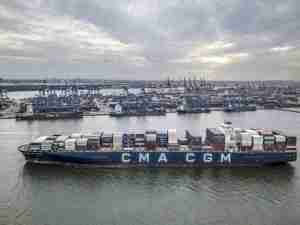The floods have forced 75 percent of Queensland's coal mines, which fuel Asia's steel mills, to grind to a halt.
Slower coal activity from Australia has also meant a wider differential between Pacific and Atlantic average daily earnings.
Earnings for panamax vessels travelling on the Baltic Exchange's transpacific route fell to $7,431 a day, the lowest since April 2009. Earnings on the transatlantic route inched higher to $20,403 a day.
The Baltic's panamax index rose 1.45 percent, with average daily earnings up $201 to $14,513 in the first rise since Dec. 8 last year. Panamax vessels usually transport 60,000-70,000 tonne cargoes of coal and grains.
Analysts said the gain was due to tight availability of panamax vessels in the Atlantic.
"In the panamax market the Pacific basin is hit by the reduction in coal exports out of Australia, whereas the sentiment in the Atlantic basin is more positive," Pareto Securities said.
For the capesize market, rates were also seen coming under pressure due to slower Chinese ore buying as well as weaker sentiment due to the disruptions in Australia.
Australia recorded its third-wettest year on record in 2010 due to a major La Nina weather pattern which is set to last another three months.
"Capesize declines have been accelerated by typhoons and floods ... with resultant partial paralysis of iron ore and coal exports," broker Fearnleys said.
"Pacific spot activity is thus close to negligible, with spot rates dropping," broker Fearnleys said.
Capesize fixture rates on the key iron ore route into China from Western Australia inched lower to $7.81 a ton from $8.054 on Dec. 24, the last day dry bulk data was published for 2010.
Freight rates for the Brazil-China route eased to $19.68 a ton from $20.61 on Dec. 24. (Reuters)








